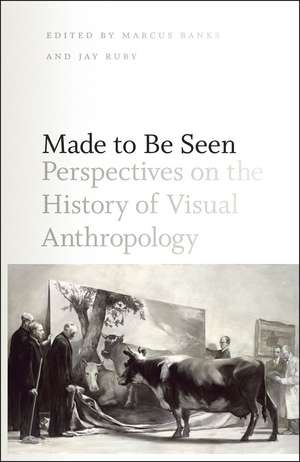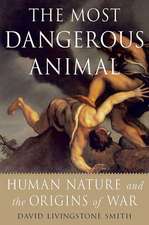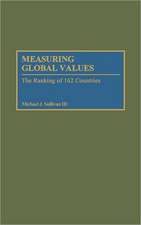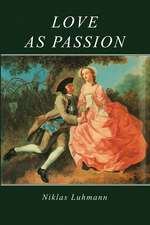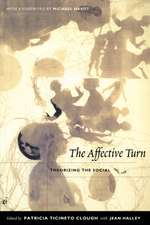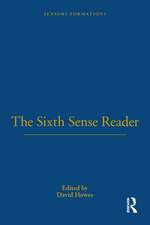Made to Be Seen: Perspectives on the History of Visual Anthropology
Editat de Marcus Banks, Jay Rubyen Limba Engleză Paperback – 15 iul 2011
The first attempt to present a comprehensive overview of the many aspects of an anthropological approach to the study of visual and pictorial culture, Made to be Seen will be the standard reference on the subject for years to come. Students and scholars in anthropology, sociology, visual studies, and cultural studies will greatly benefit from this pioneering look at the way the visual is inextricably threaded through most, if not all, areas of human activity.
| Toate formatele și edițiile | Preț | Express |
|---|---|---|
| Paperback (1) | 393.37 lei 6-8 săpt. | |
| University of Chicago Press – 15 iul 2011 | 393.37 lei 6-8 săpt. | |
| Hardback (1) | 816.71 lei 6-8 săpt. | |
| University of Chicago Press – 15 iul 2011 | 816.71 lei 6-8 săpt. |
Preț: 393.37 lei
Nou
Puncte Express: 590
Preț estimativ în valută:
75.28€ • 77.77$ • 62.65£
75.28€ • 77.77$ • 62.65£
Carte tipărită la comandă
Livrare economică 25 martie-08 aprilie
Preluare comenzi: 021 569.72.76
Specificații
ISBN-13: 9780226036625
ISBN-10: 0226036626
Pagini: 432
Ilustrații: 27 halftones
Dimensiuni: 152 x 229 x 25 mm
Greutate: 0.63 kg
Editura: University of Chicago Press
Colecția University of Chicago Press
ISBN-10: 0226036626
Pagini: 432
Ilustrații: 27 halftones
Dimensiuni: 152 x 229 x 25 mm
Greutate: 0.63 kg
Editura: University of Chicago Press
Colecția University of Chicago Press
Notă biografică
Marcus Banks is professor of visual anthropology at the University of Oxford and the author, most recently, of Using Visual Data in Qualitative Research. Jay Ruby is professor emeritus of anthropology at Temple University and the author or editor of numerous books, including Picturing Culture: Essays on Film and Anthropology, also published by the University of Chicago Press.
Cuprins
Introduction
Made To Be Seen: Historical Perspectives on Visual Anthropology
Marcus Banks and Jay Ruby
Made To Be Seen: Historical Perspectives on Visual Anthropology
Marcus Banks and Jay Ruby
1 Skilled Visions: Toward an Ecology of Visual Inscriptions
Cristina Grasseni
2 Material Visions: Dress and Textiles
Sandra Dudley
3 Visual Anthropology and the Built Environment: Interpenetrations of the Visible and the Invisible
Roxana Waterson
4 Unfinished Dialogues: Notes toward an Alternative History of Art and Anthropology
Arnd Schneider
5 Theorizing “the Body” in Visual Culture
Brenda Farnell
6 Tracing Photography
Elizabeth Edwards
7 Ethnographic Film
Matthew Durington and Jay Ruby
8 Digital Visual Anthropology: Potentials and Challenges
Sarah Pink
9 Native Intelligence: A Short History of Debates on Indigenous Media and Ethnographic Film
Faye Ginsburg
10 Productive Dissonance and Sensuous Image-Making: Visual Anthropology and Experimental Film
Kathryn Ramey
11 Anthropology and the Problem of Audience Reception
Stephen Putnam Hughes
Hindsight/Postscript
Ethical and Epistemic Reflections on/of Anthropological Vision
Michael Herzfeld
Bibliography
Filmography
Contributors
Index
Recenzii
“Marcus Banks and Jay Ruby are leading figures in the field of visual anthropology, and in Made to Be Seen they have assembled an excellent set of authors to analyze the breadth of the discipline. In their introduction Banks and Ruby show clearly why paying attention to the visual dimension of human culture is vital, provide a good sense of the development of the field over time, and offer their views on how it can achieve its full potential. The rest of the essays display a diverse, balanced range of views that taken together provide an outstanding addition to the literature.”
“This excellent edited volume is a must-read for persons interested in anthropological writing on visual media, visual aspects of corporeality, and the situated practices surrounding objects. While varied in scope and purpose, the 13 chapters are uniformly excellent in challenging readers to see anthropological theory reflected through the visual world….An outstanding, inspirational, and challenging overview of contemporary visual anthropology.”
